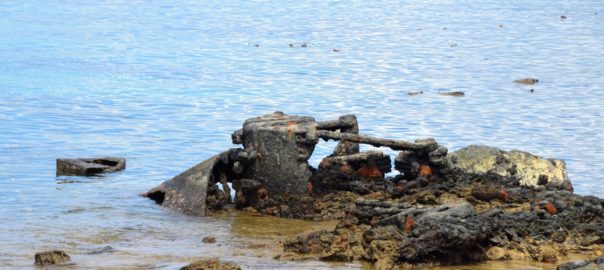Espiritu Santo was an important base of operations during WWII. The Allies used the island as a support and supply base. Santo eventually became the second largest US base in the Pacific with 40,000 troops stationed there. They had airbases, repair facilities and a naval harbor.
Today reminders of the war are scattered throughout the island along with their legends and stories.
As a World War II buff, I was excited to take the Santo WWII Tour with Santo Heritage Tours on my trip Pacifying the Pacific.
I organized the tour through my hotel and the next day Jerry came to pick me up. I was fortunate enough to get a private tour, so I could control how much time we spent at each location.
We started by driving along the coast, stopping at points of interest. We passed the old naval harbor which was still being used by smaller cargo ships and then the remains of an anti-submarine boom tower which was where they attached a net to protect the port from submarines.
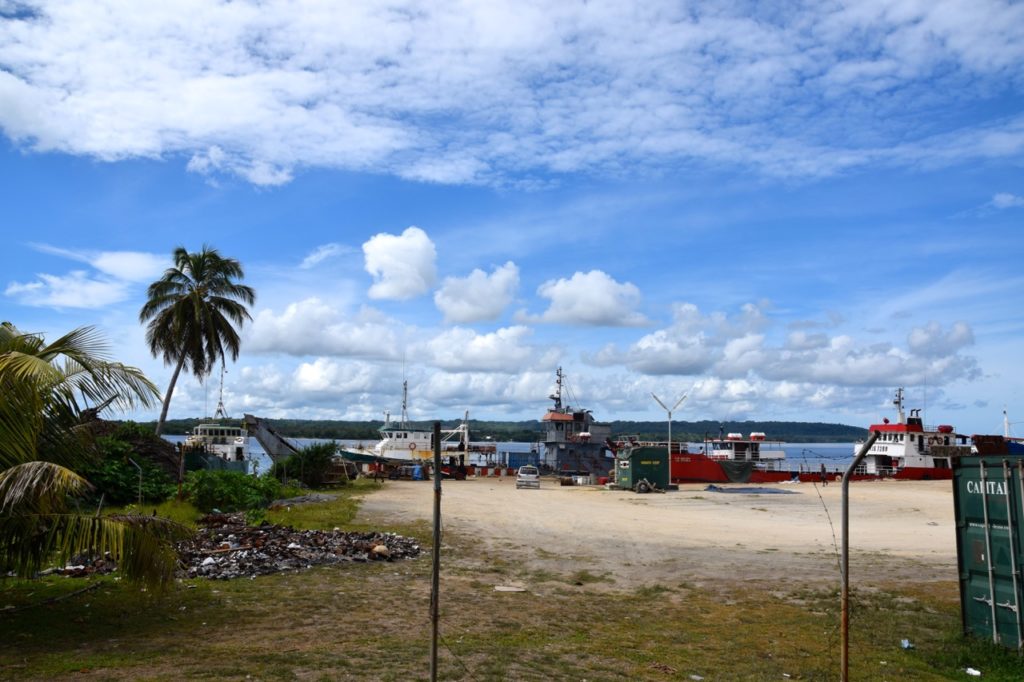
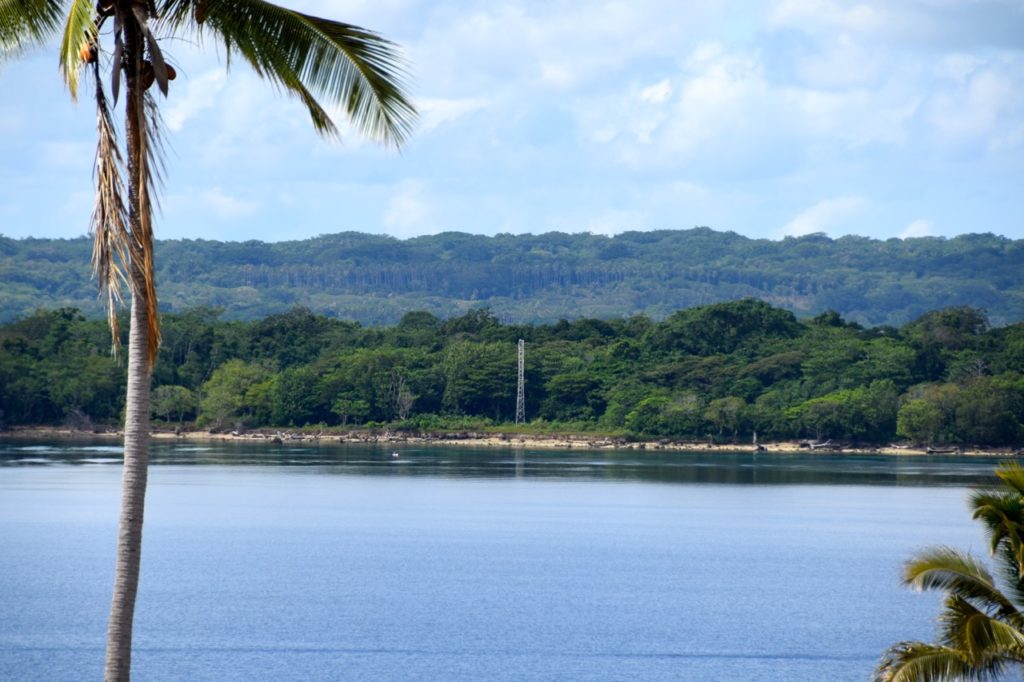
A few minutes later we reached the world-famous dive site, the US President Coolidge. This luxury liner turned troop carrier sank right off of the beach. The captain made a grave error when entering the harbor from the wrong point which was laden with mines. Striking two mines, the captain made the decision to beach the vessel, an action that saved 5,340 lives. Two men perished. A mechanic that died from the first mine blast and a Captain that returned to the ship to free some trapped soldiers only to go down with the ship.
Interestingly a local dive company found the remains of Captain Elwood Joseph Euart in 2013. The next year a Navy dive crew arrived to removed the remains for a proper burial.
Not only is the history incredible, but so is diving and exploring the wreck. I had a crazy experience descending more than 40m and getting nitrogen narcosis to see “The Lady”.
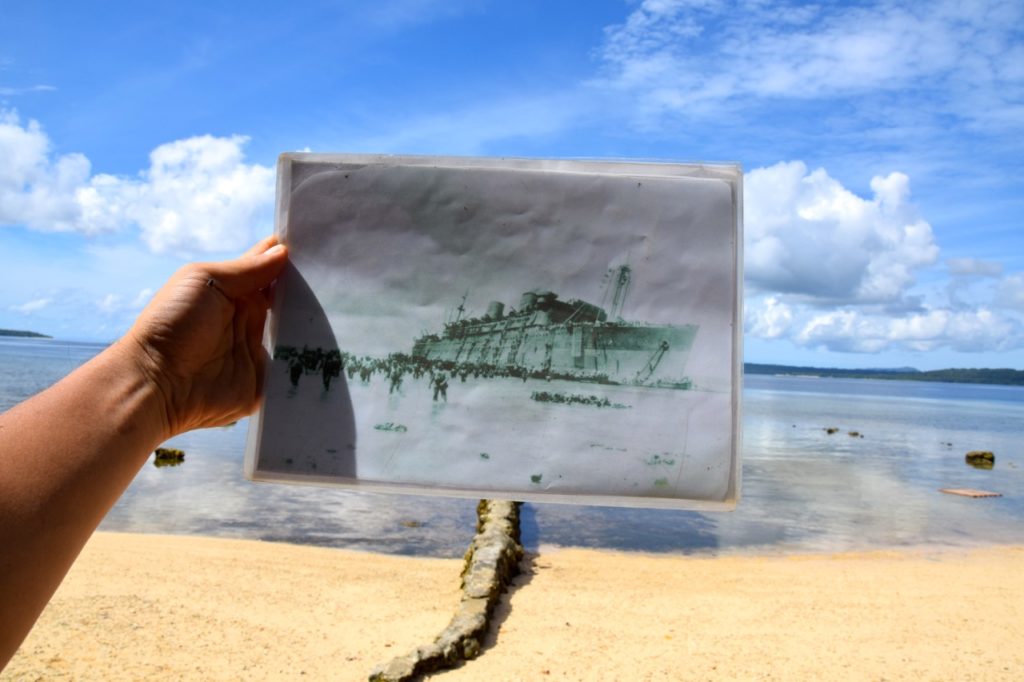
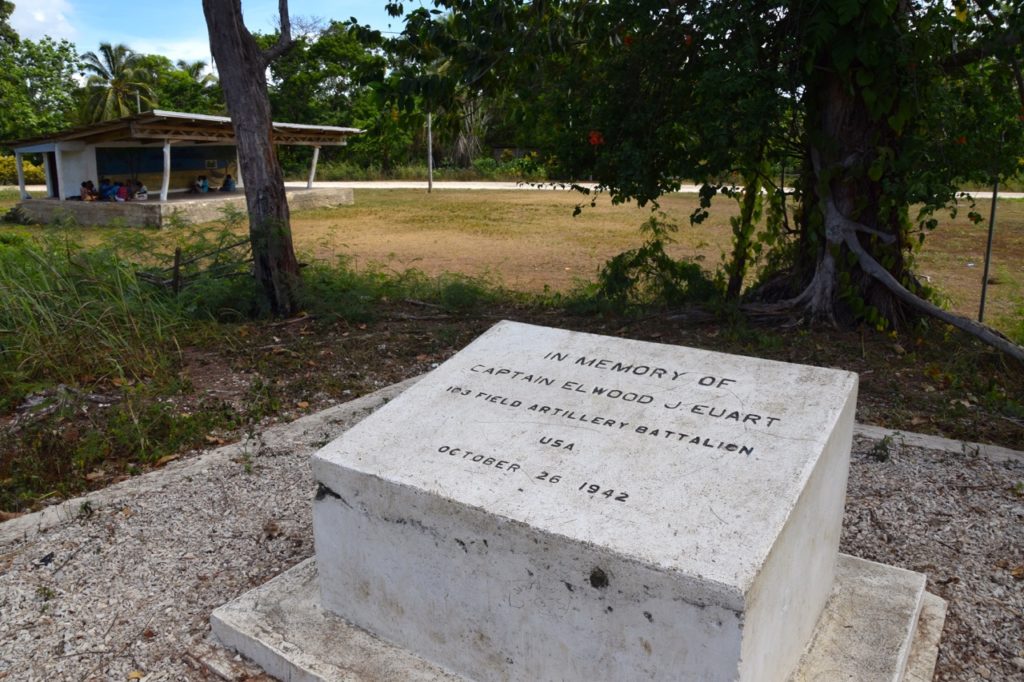
Continuing the tour, we arrived at Million Dollar Point, the location named for all of the equipment the US dumped into the sea after WWII with a value of well over a cool million. Apparently at the end of the war, the equipment which was too expensive to ship back to the US was up for sale pennies on the dollar. The British and French got greedy and refused to pay expecting that the US would leave and they could just scoop it all up for free. Unfortunately this didn’t sit too well with the US, so they decided to amass all of the equipment on a pier and blow it up. Then bulldoze whatever was left into the ocean.
What a sad story of waste and environmental damage. Jerry told me about a local guy who ended up salvaging several tractors, some of which would crank to a start as soon as he took them out of the water and ended up selling them making quite a fortune. That’s entrepreneurship for you.
We stopped here so we could snorkel and explore. Tractors, forklifts, tank treads, boats and aircraft engines were all rusting away and now home to the reef and its creatures.
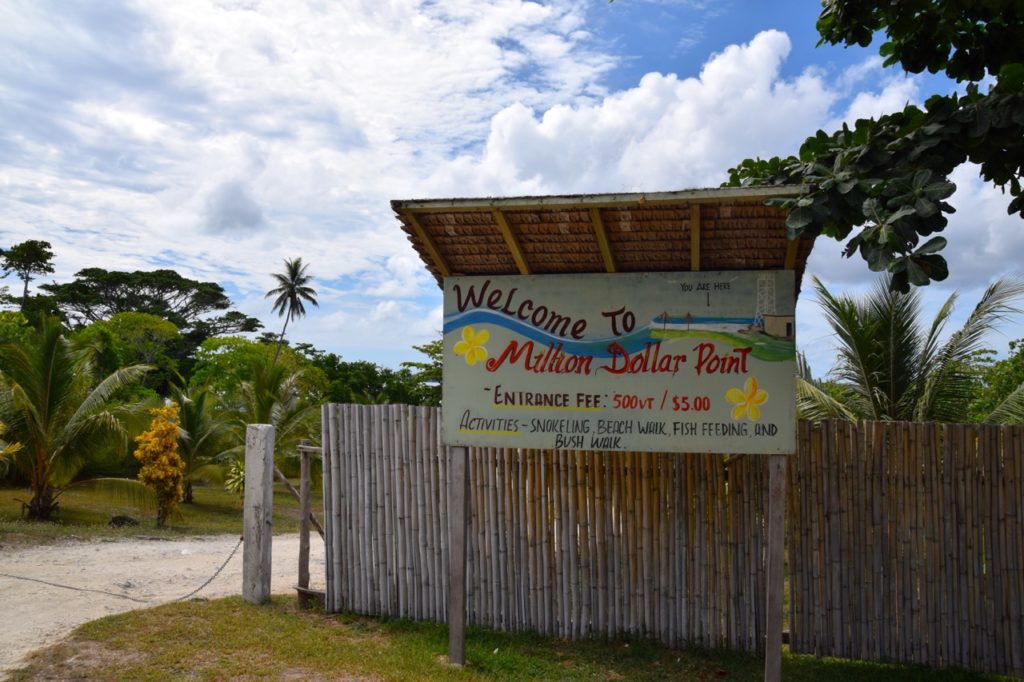
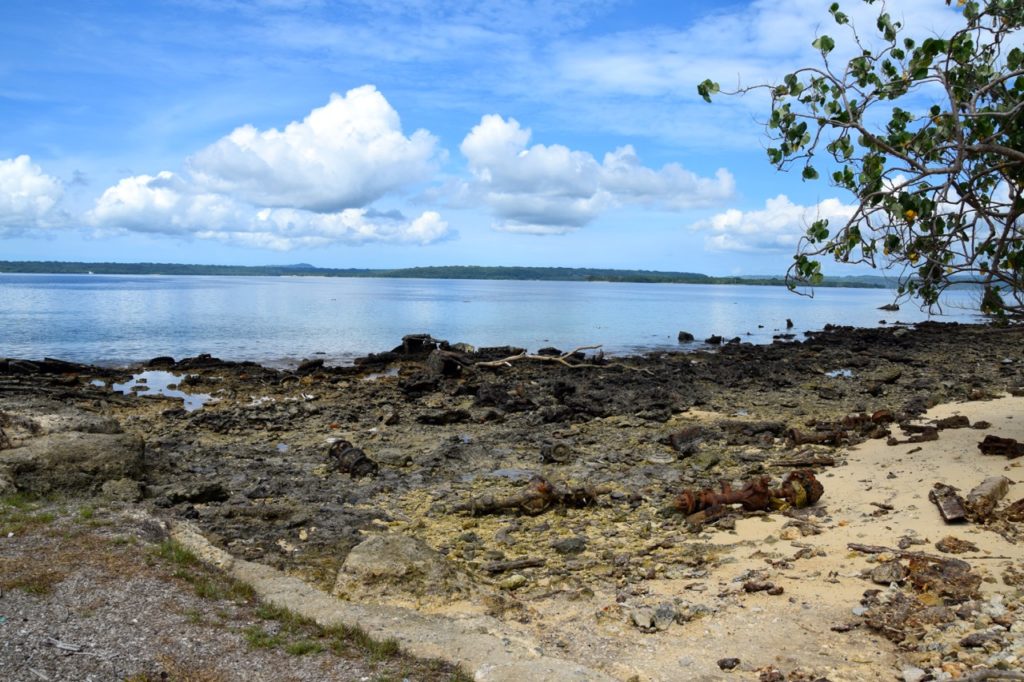
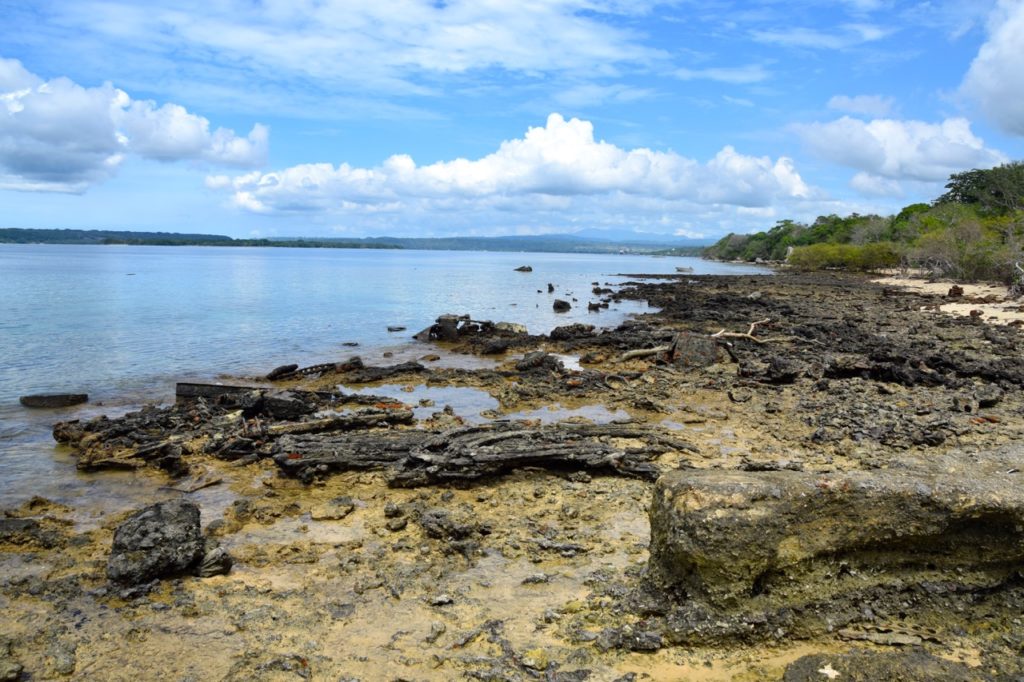
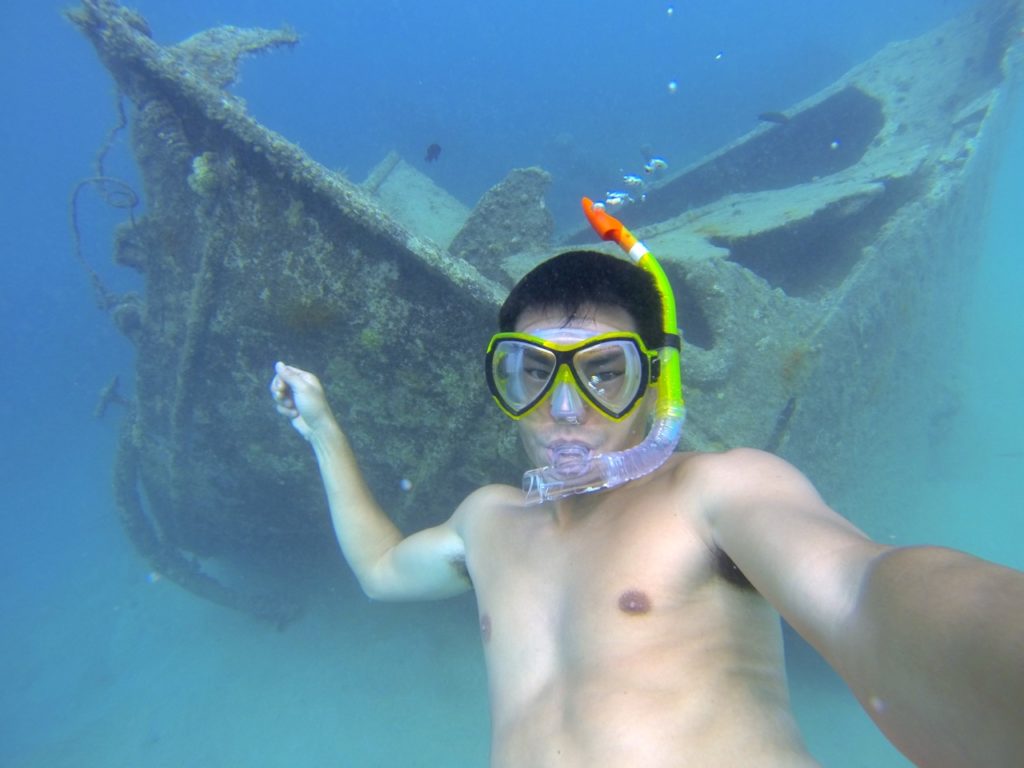
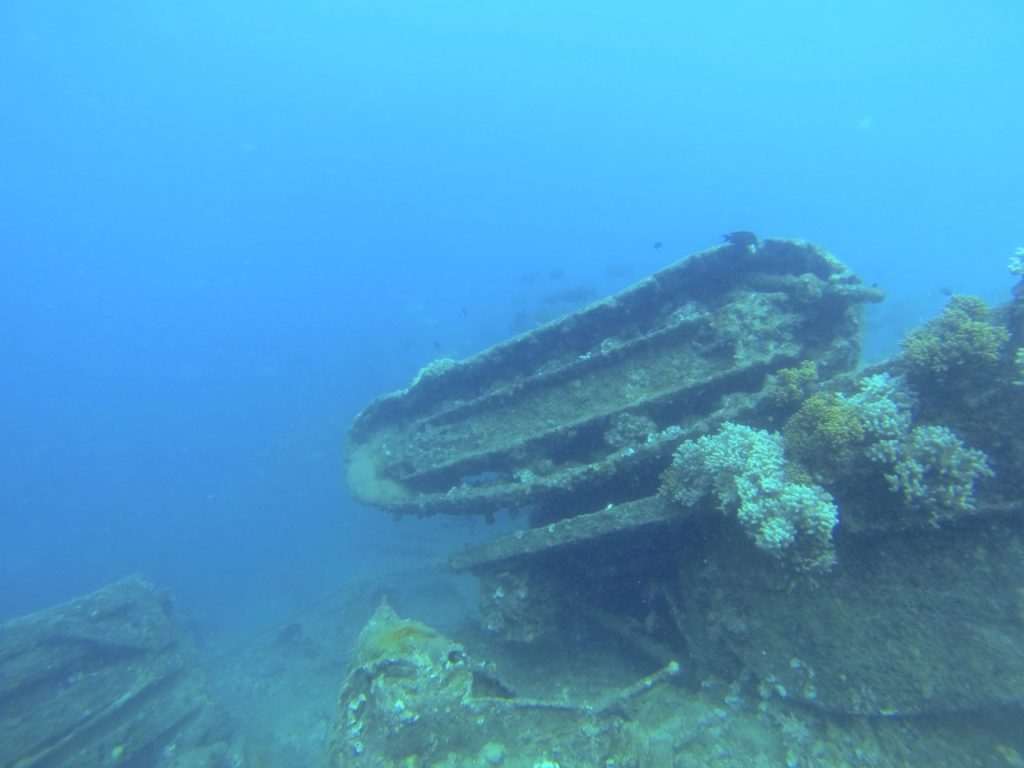
After that we wandered into the forest to find what was left of a B17. This aircraft was damaged during a bombing run and crash landed in the forest on its return to base.
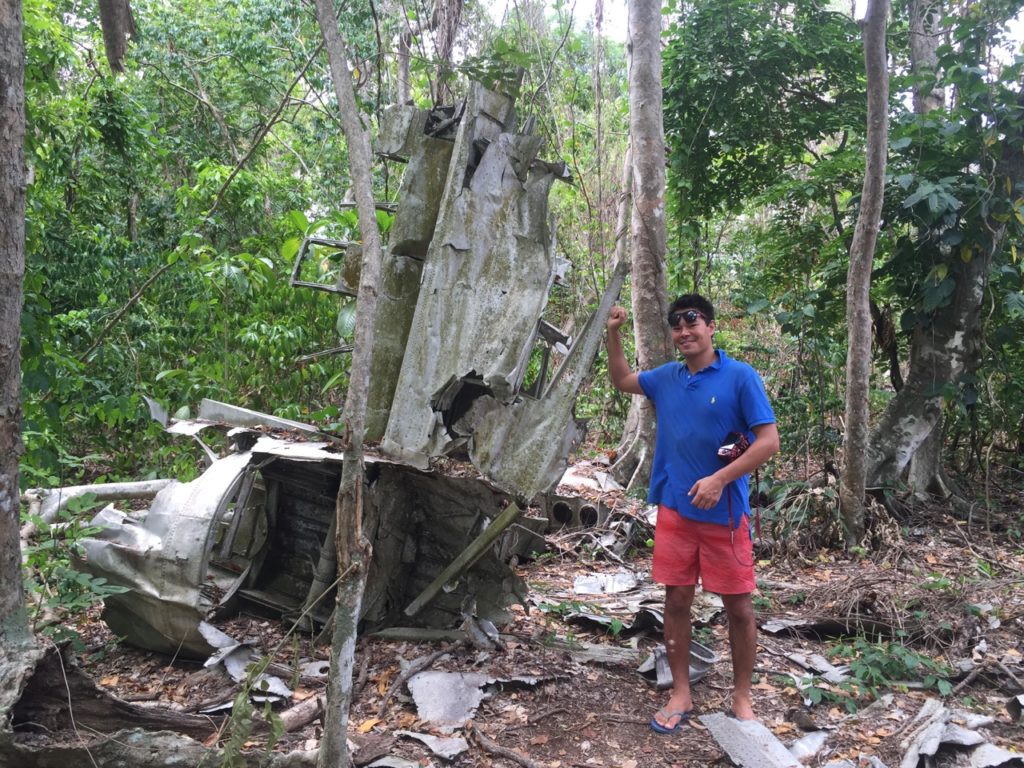
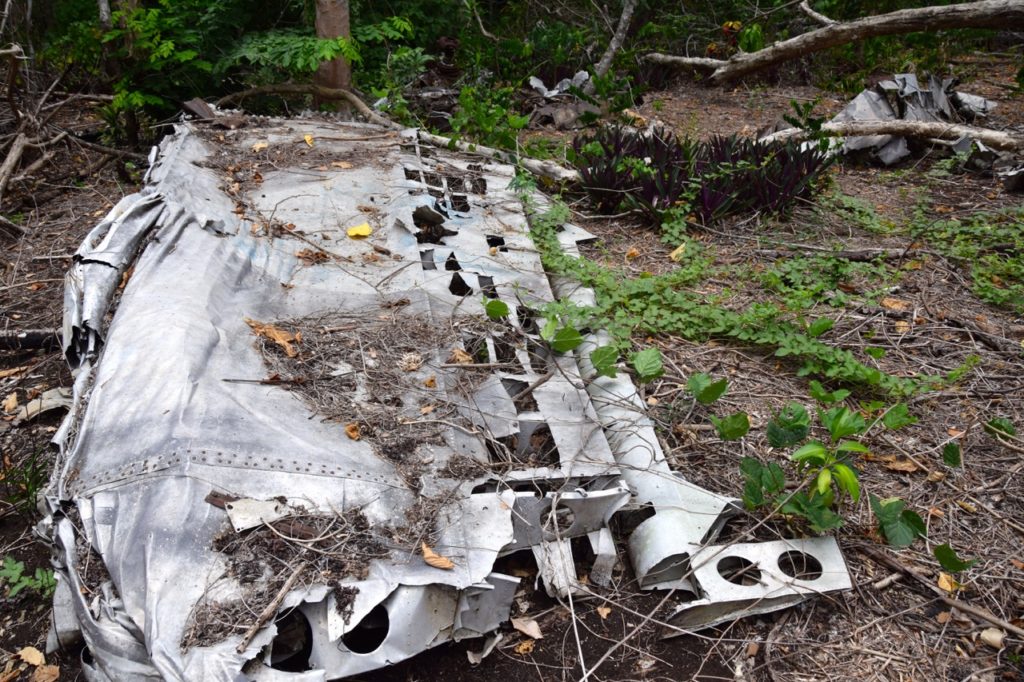
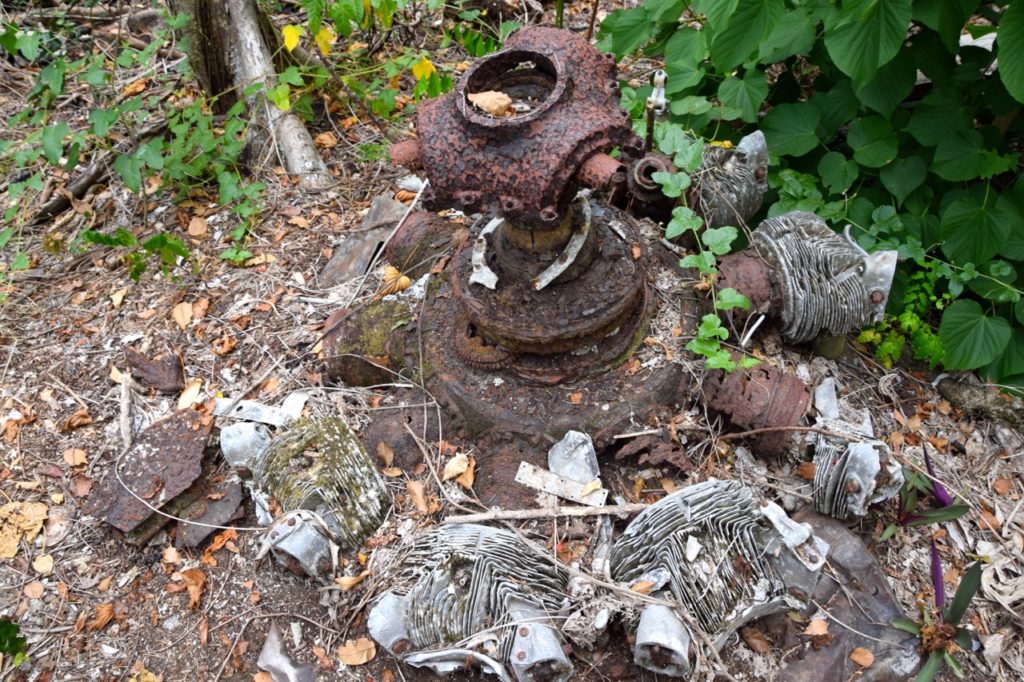
Back to the beach we found foundations of a camp occupied by the New Zealanders during the war. The location looked more like a resort than a base.
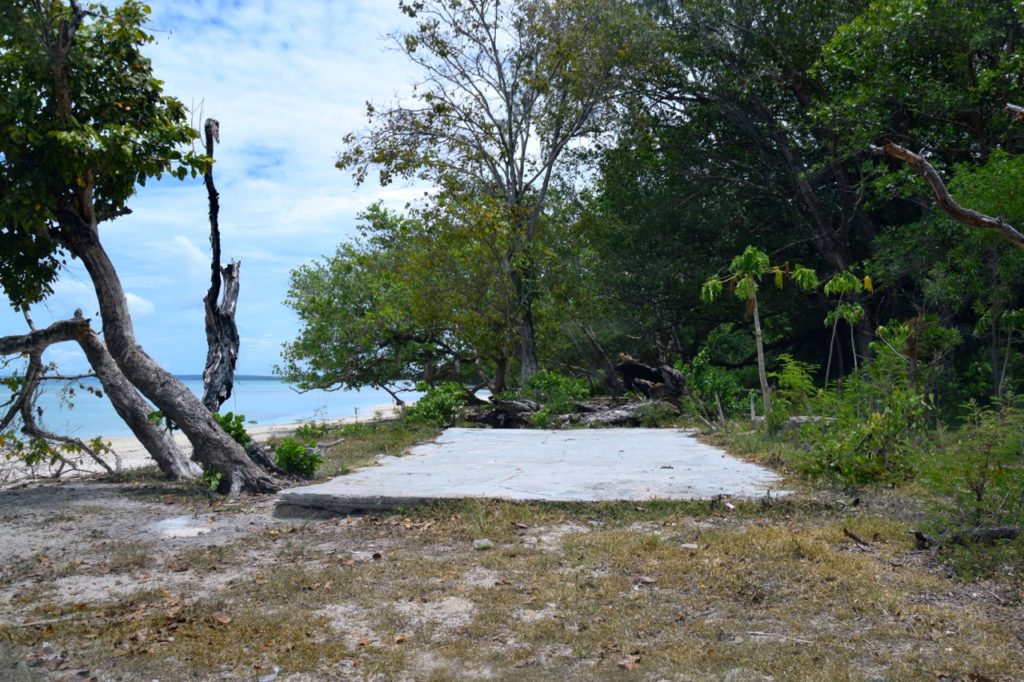
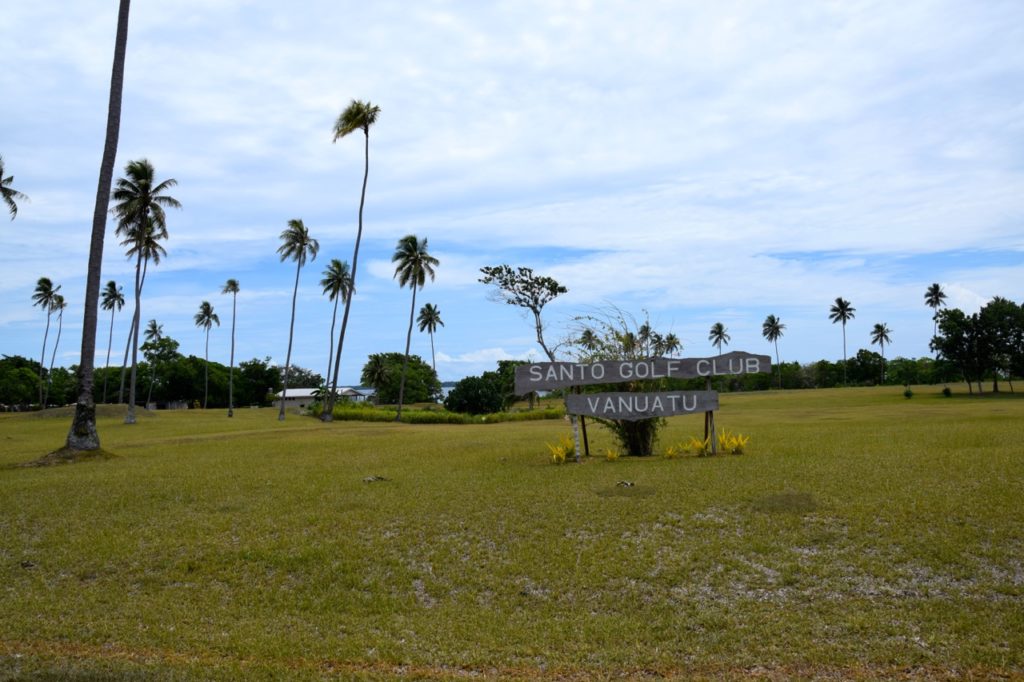
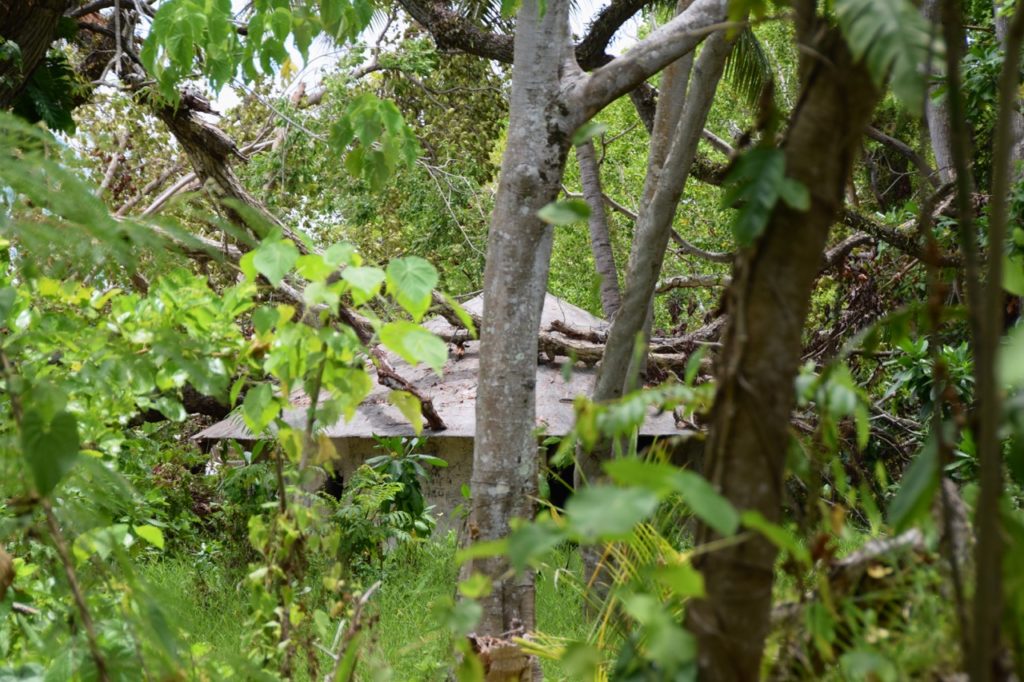
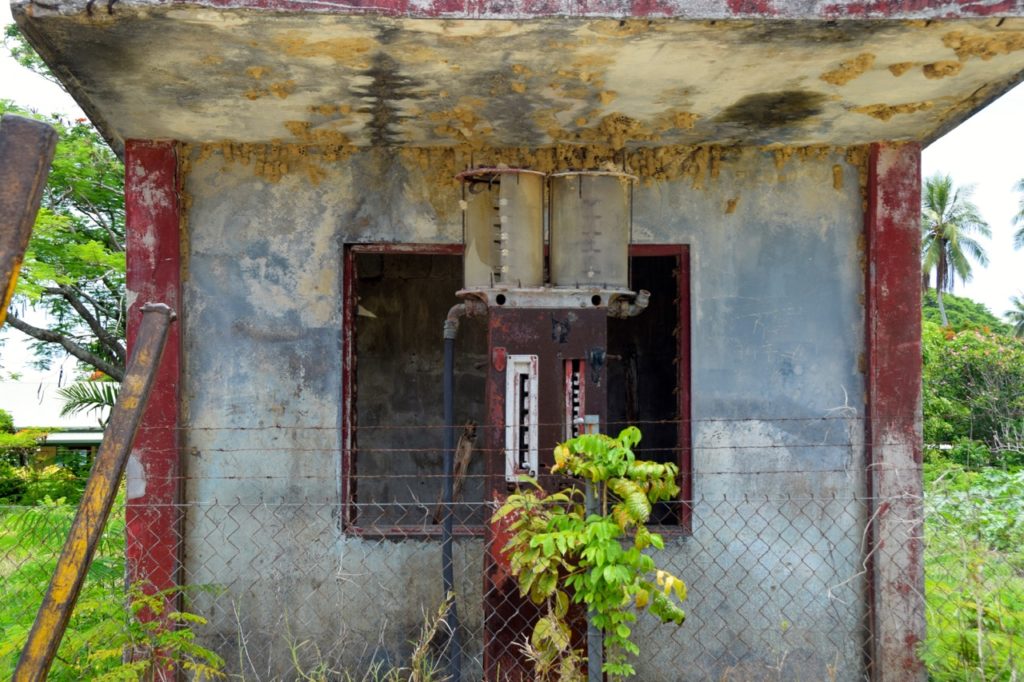
We then stopped for lunch at a secret location near Champagne Beach. Jerry cooked up some delicious steak sandwiches and hacked open some coconuts. The reef was especially colorful, so I did some more snorkeling after lunch.
Champagne Beach is frequented by cruise ships and a popular tourist destination. On my visit however, it was completely deserted save for a few cows and locals.
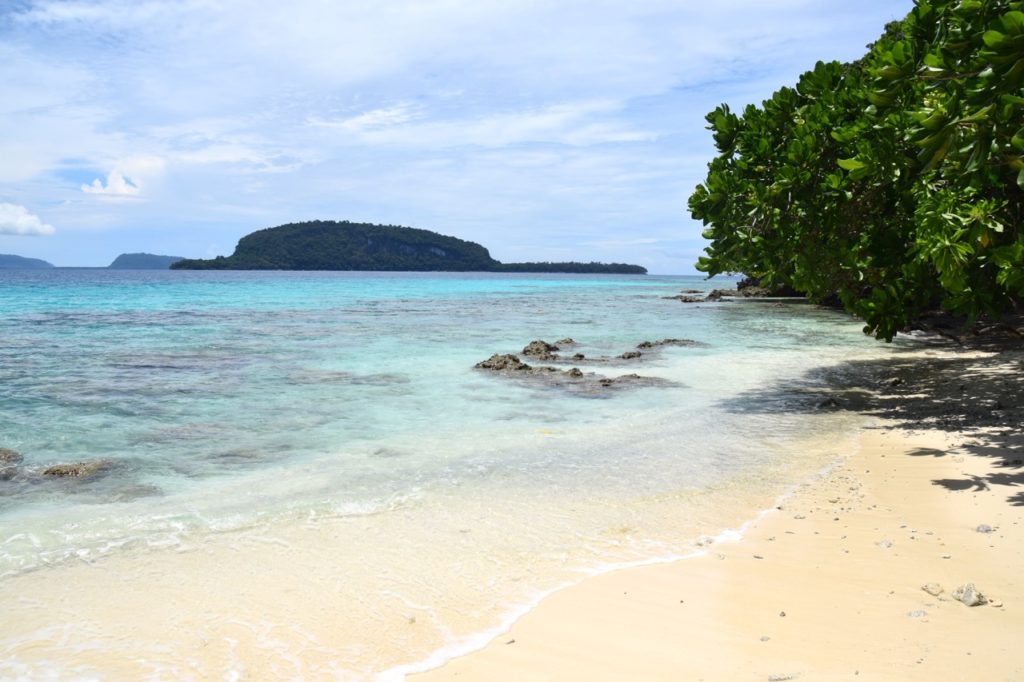
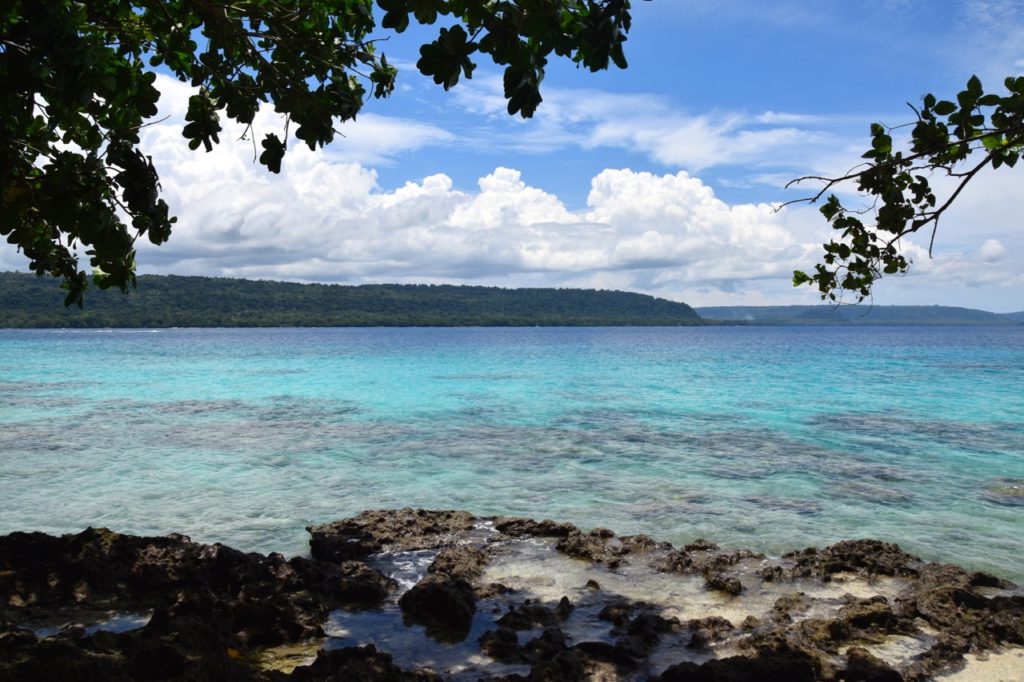
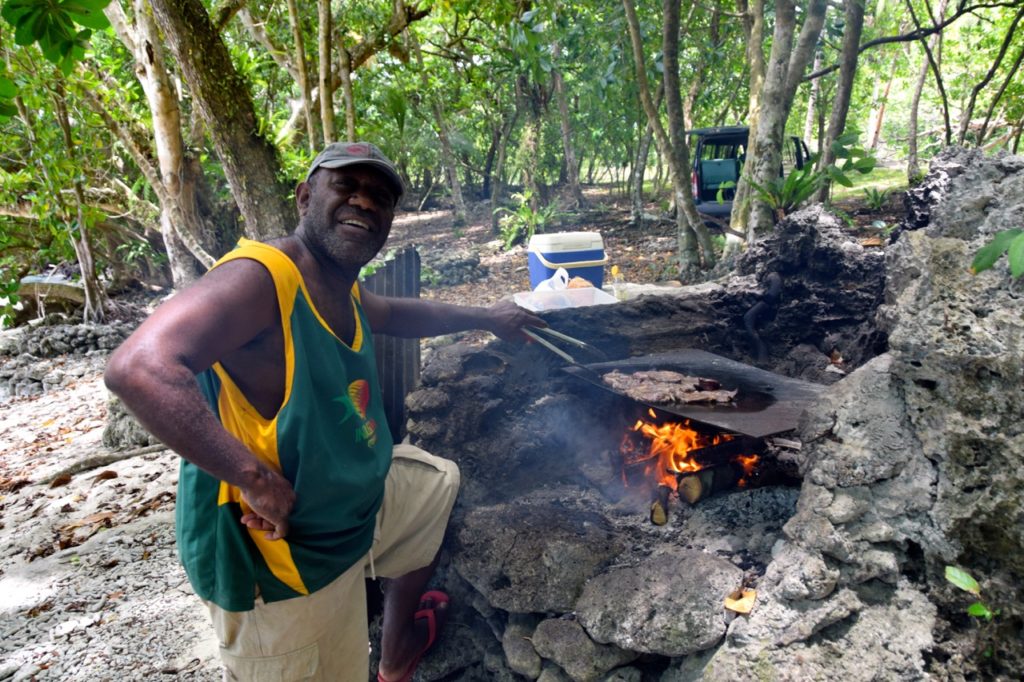
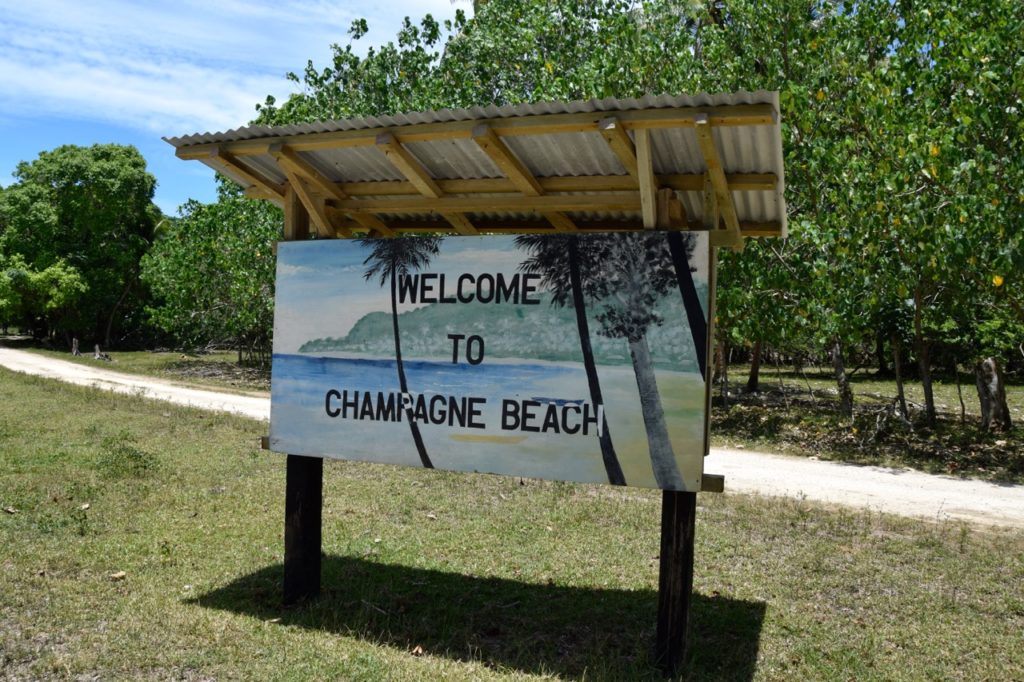
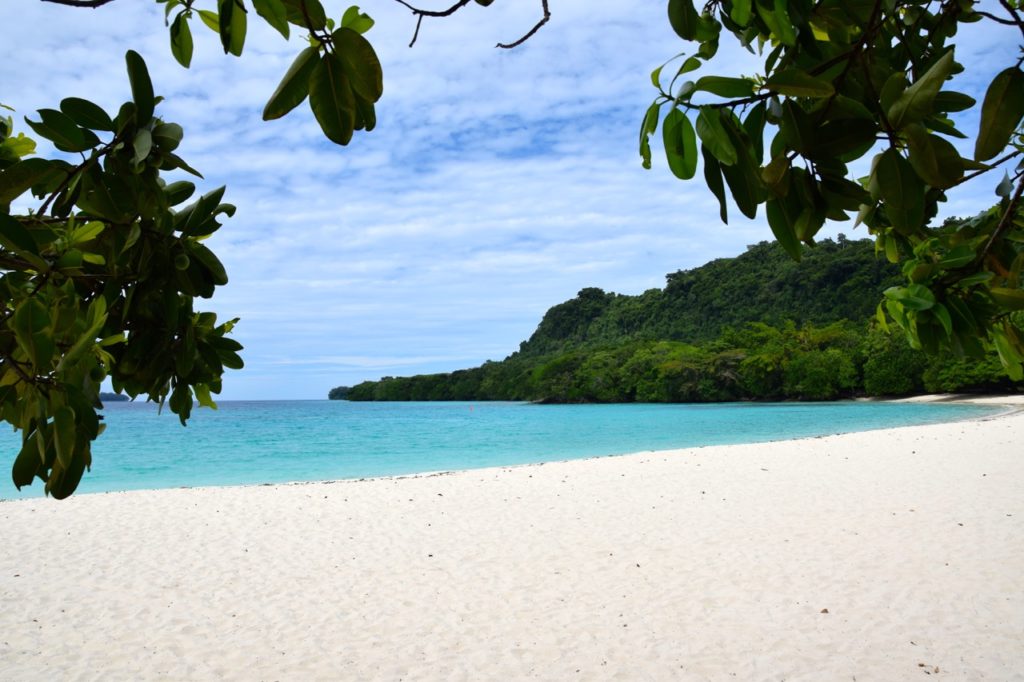
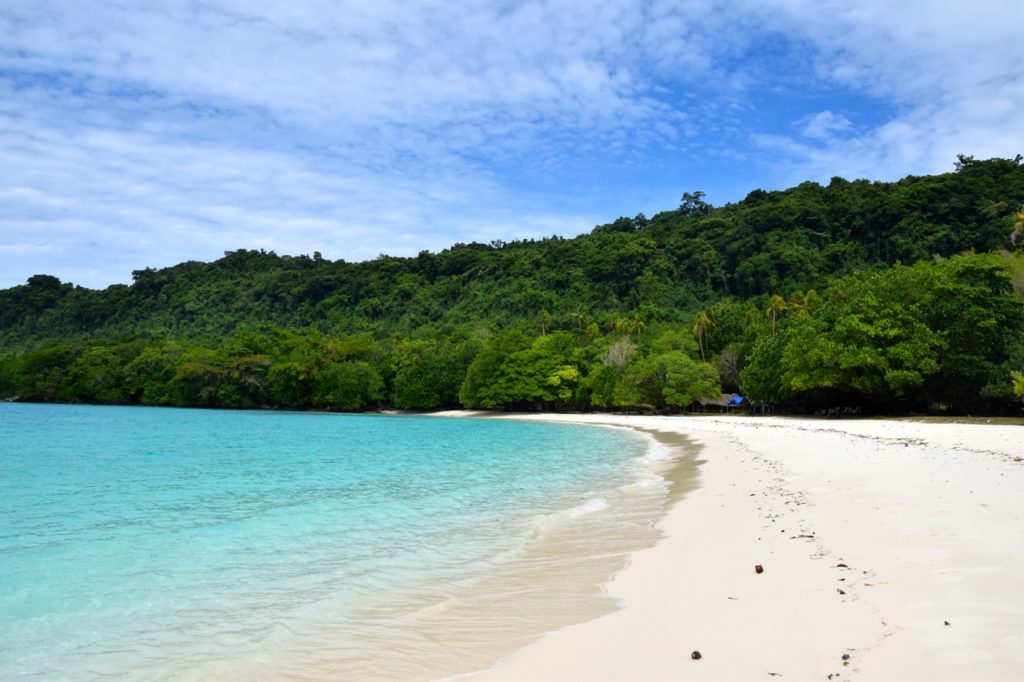
Back inland, we ended up at Matevulu Blue Hole. This has been a popular swimming hole and its name is from the deep blue color of the water. Apparently the celebrity Bing Crosby visited here during his USO tour focused on boosting morale.
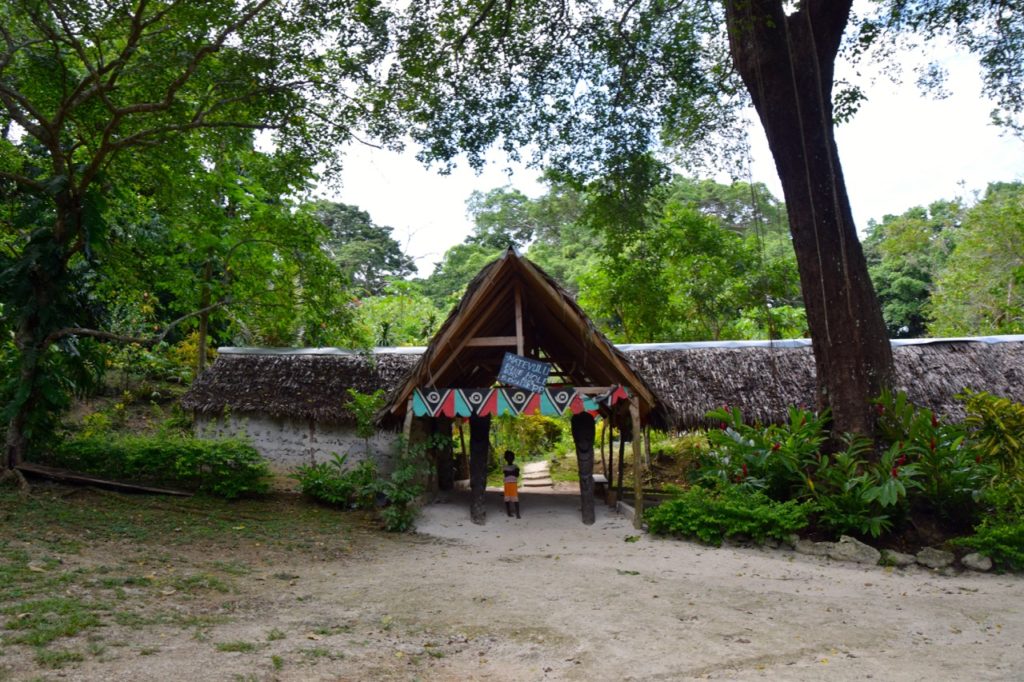
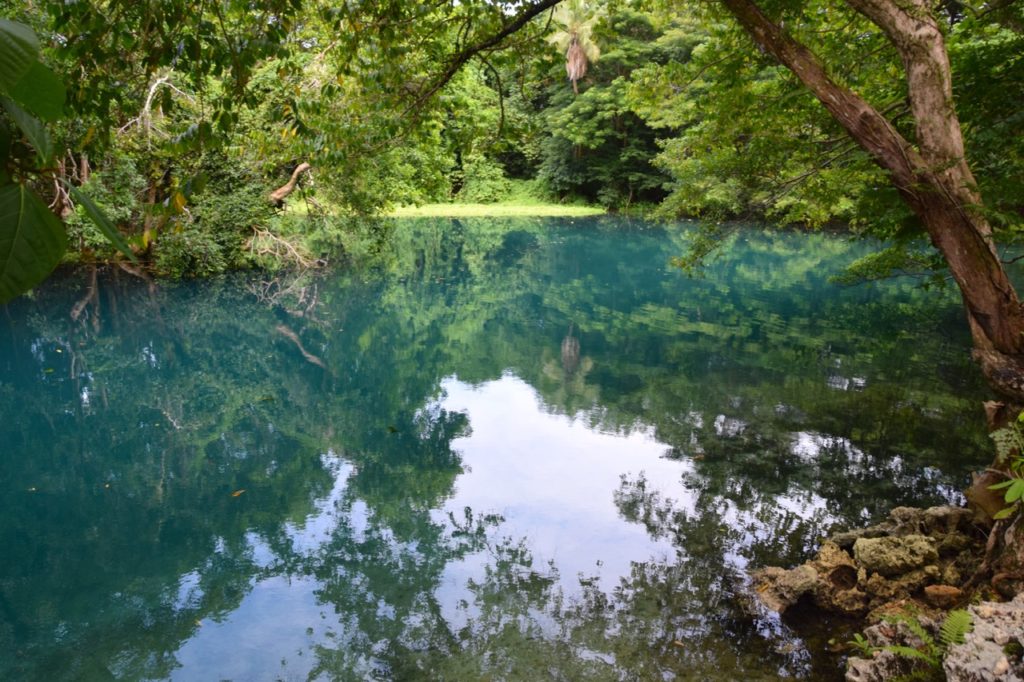
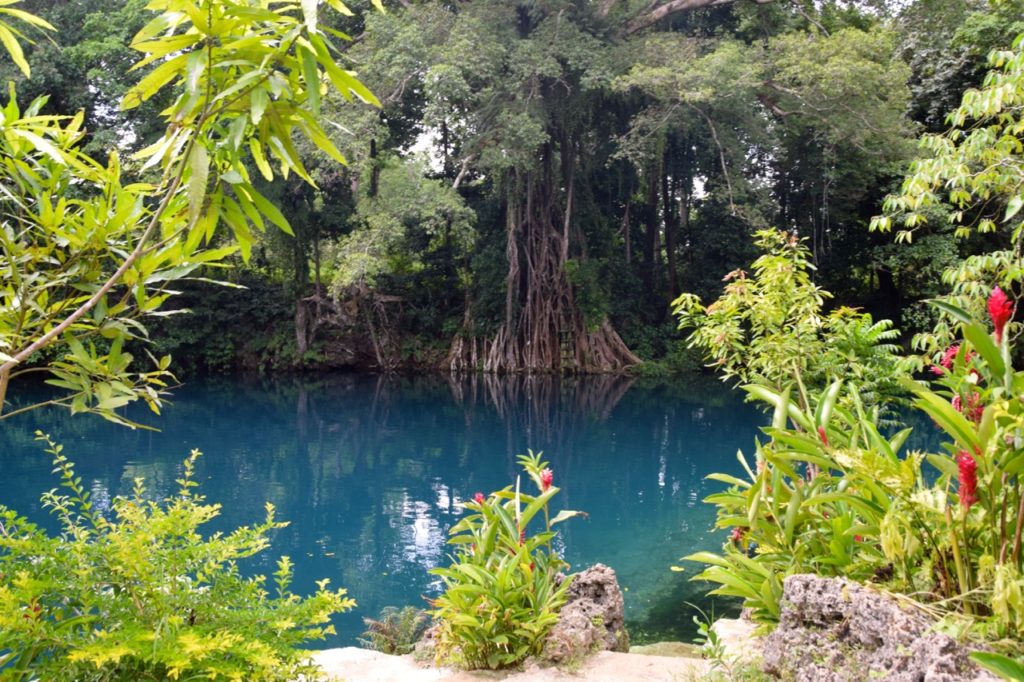
We then headed back to town. Several of the roads we drove on were previously airstrips built during WWII.
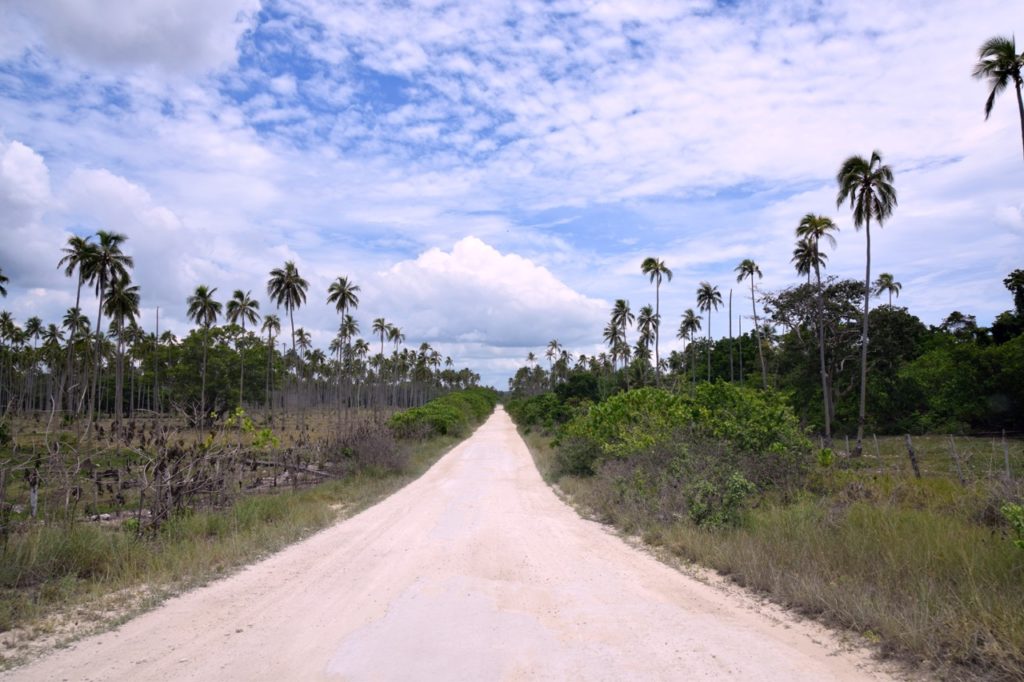
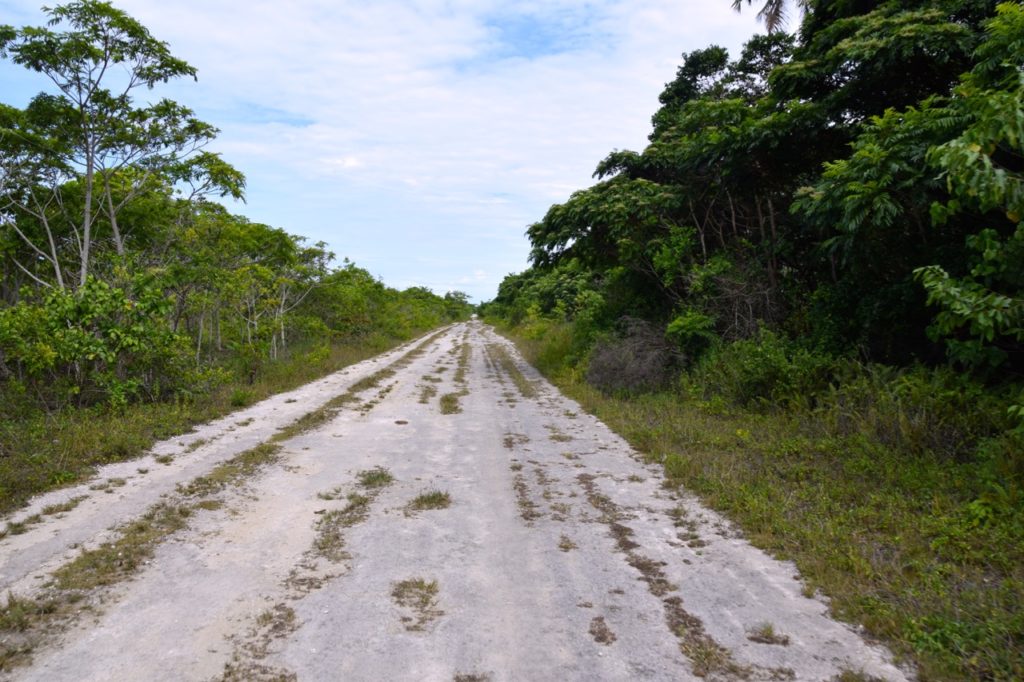
Luganville is the largest city of the island and the second largest of Vanuatu. Much of its development can be traced back to WWII when it served as an Allied base. The main street is especially wide to fit the width of four tanks side by side. Many hangars remain and have been repurposed as storage units, shops, and warehouses.
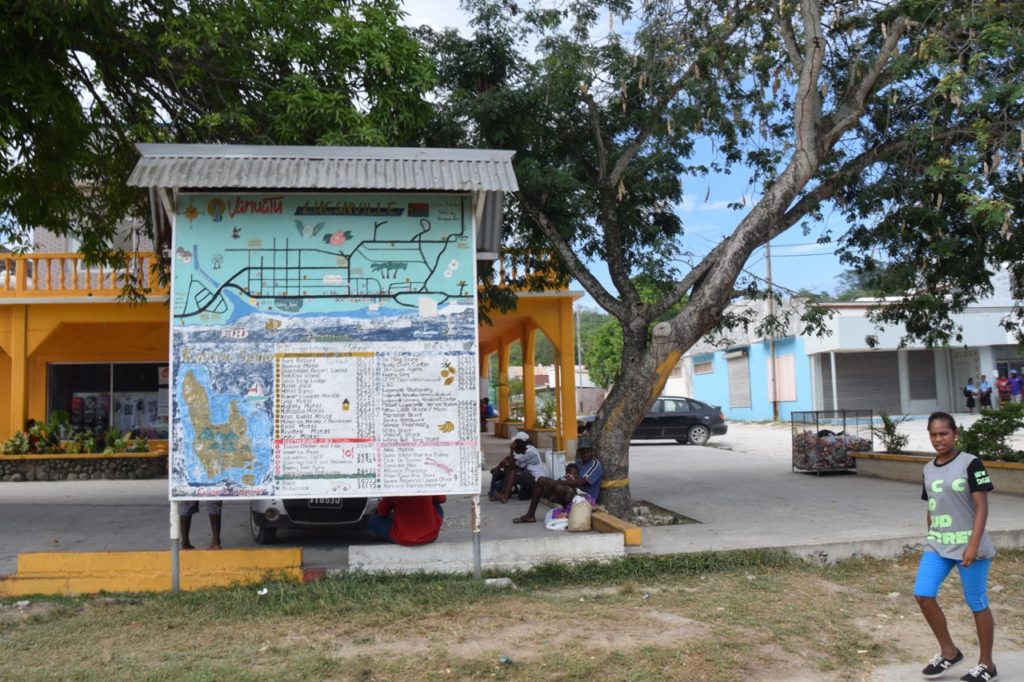
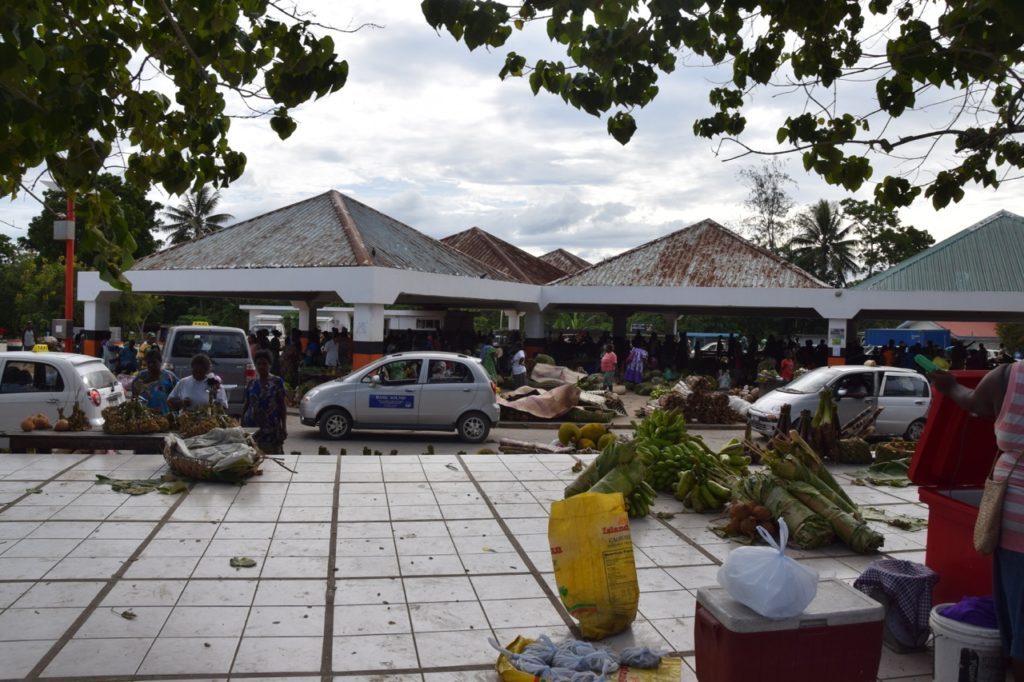
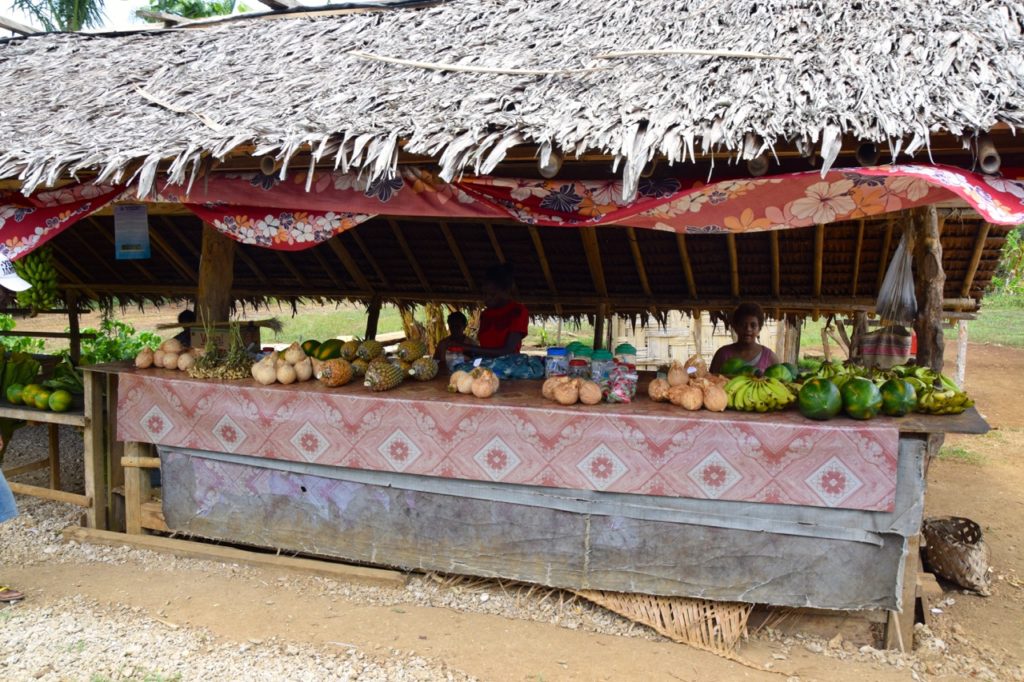
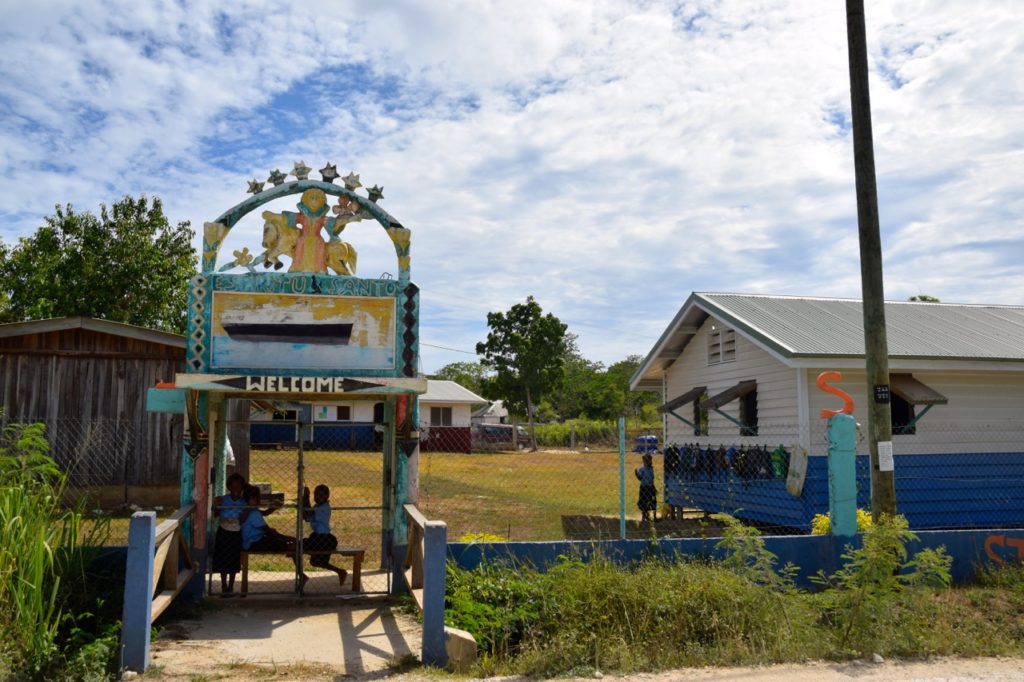
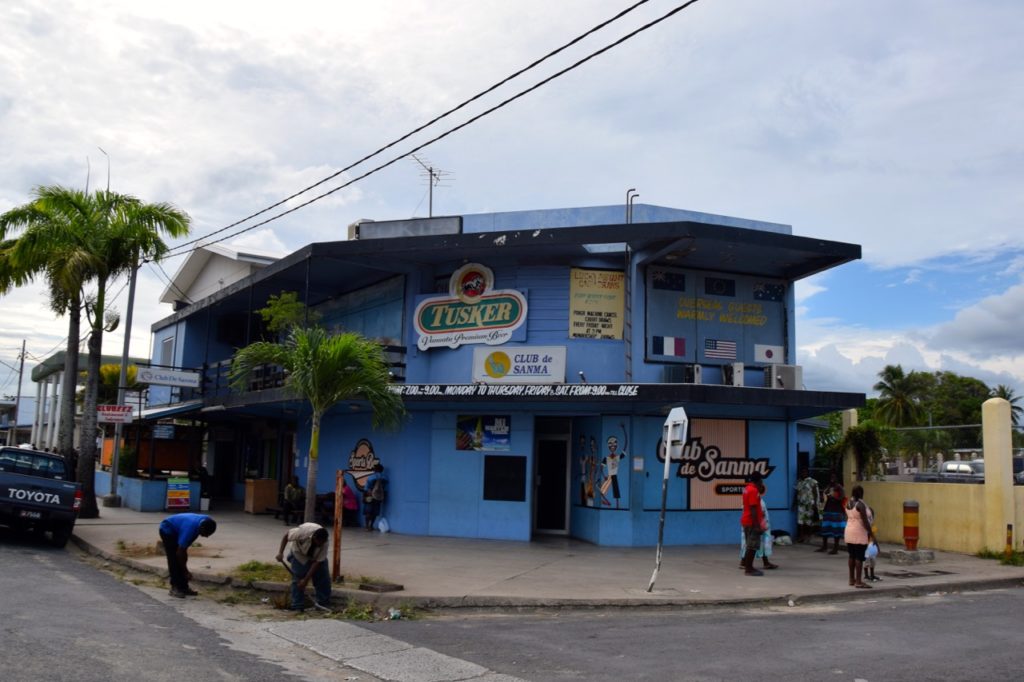
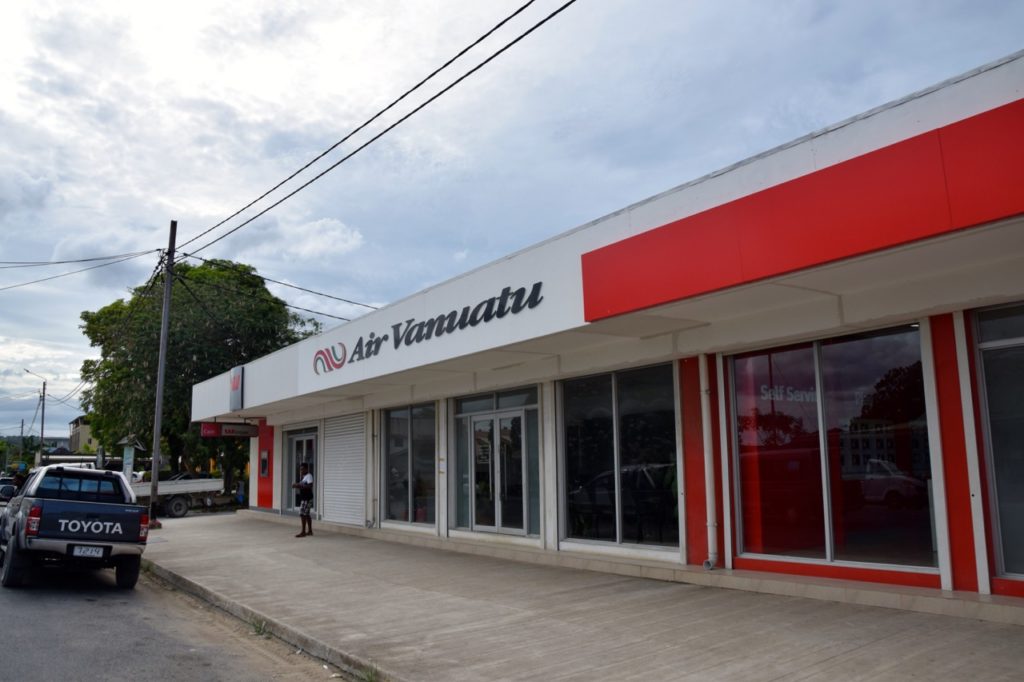
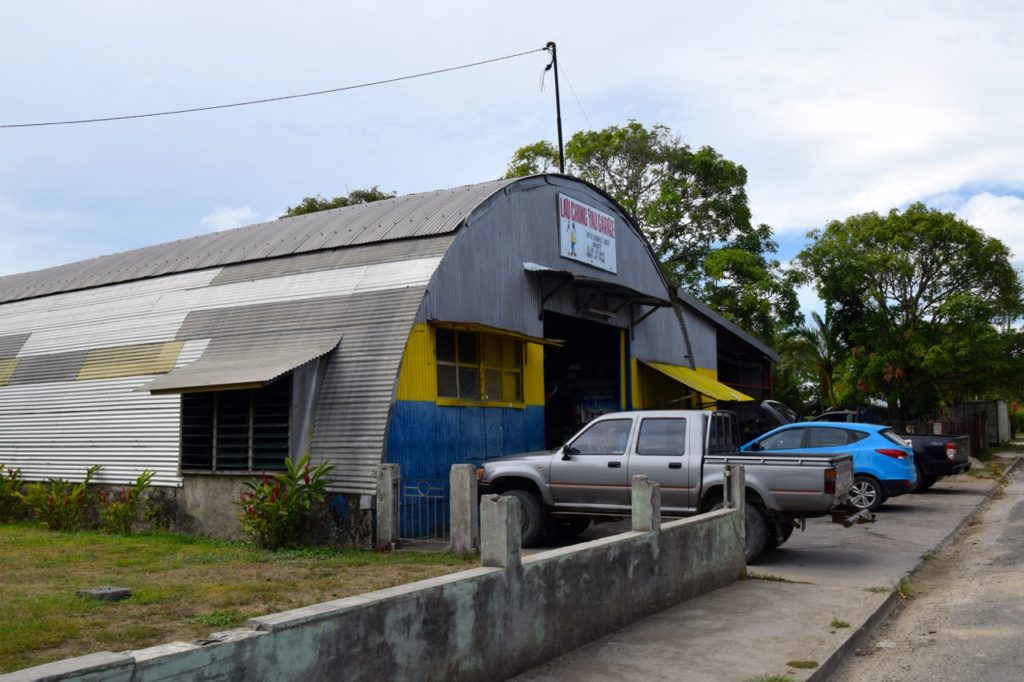
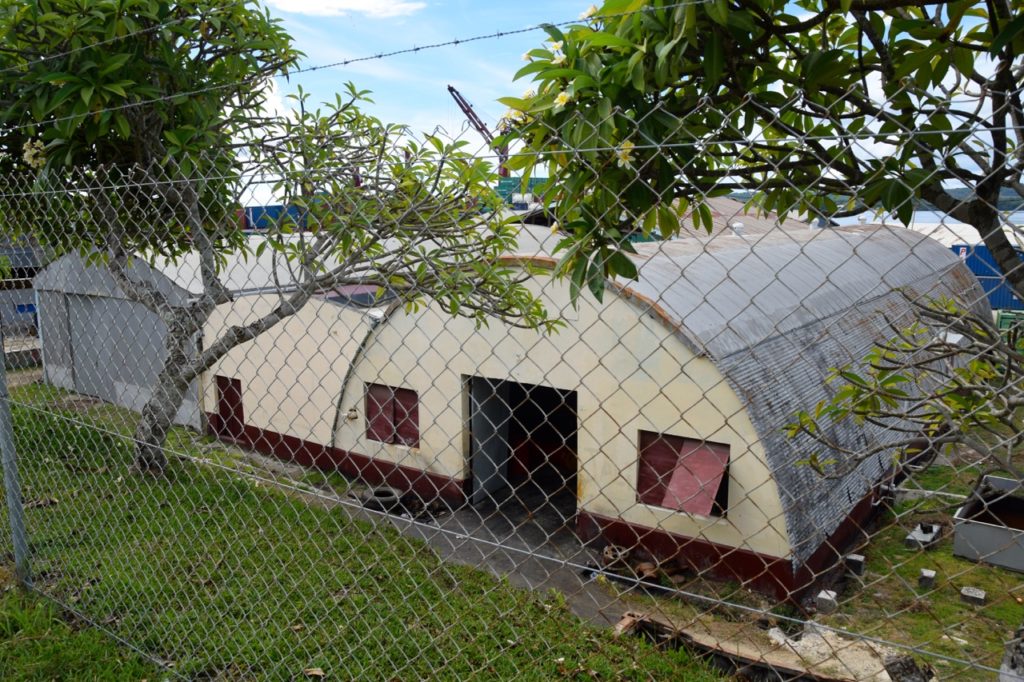
Returning to the resort, I was filled with a wonderment of all that transpired here during WWII. I imagined what life was like for soldiers stationed in Santo and how locals would react to their new neighbors.
Thanks to Jerry from Santo Heritage Tours for allowing me to peer through this window into the past.
